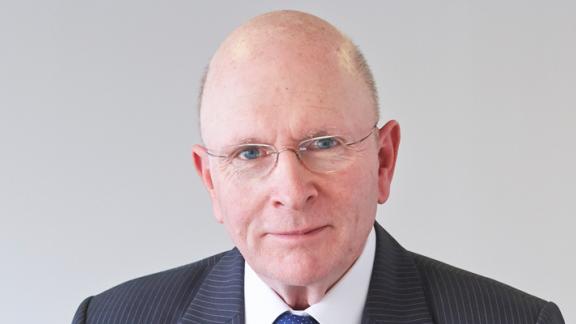The end of the purchaser/provider split?
With news of a potential shift to accountable care organisations, David Hare, chief executive of the NHS Partners Network, considers whether the end is nigh for the purchaser/provider divide.
With news of a potential shift to accountable care organisations, David Hare, chief executive of the Independent Healthcare Providers Network, considers whether the move spells the end for the purchaser/provider divide.
NHS England chief executive Simon Stevens’ recent comments that the implementation of several of the 44 sustainability and transformation plans (STPs) would “effectively end the purchaser-provider split for the first time since 1990” clearly marks a change in the direction of the NHS and raises material questions about how NHS services will be planned and secured in future.
Stevens’ comments received considerable coverage and, in some parts of the health service, were met with an expectation that it would herald the end of provider plurality, contracting and patient choice. Indeed, the Independent Healthcare Providers Network responded to his comments by stressing the importance of maintaining these principles and avoiding entrenching inflexible monopoly provision as STPs shift to their implementation phase.
But is this what was meant by his comments and what exactly is happening?
In recent years, it has become clear that NHS services need to evolve to reflect the growing number of people with multiple co-morbidities and long-term conditions. The way that services are constructed and aligned also needs to be responsive to real people rather than reflect historical organisational partitions that have barely altered in more than half a century.
Stevens himself articulated this in April 2014 when he gave his first speech after taking on the NHS England chief executive role saying, rightly, that “quality isn’t just about the individual test result or prescription or hospital stay, it’s about how all the pieces come together.”
The Five Year Forward View (FYFV) was designed to kick-start the reforms needed to bring this to life and the generally positive response to the FYFV reflected a broad consensus that the NHS needed to change to avoid what Stevens himself warned could result in “an NHS with a ‘like it or lump it’ attitude [that] will simply not survive.”
Two and a half years on from the publication of the FYFV it is clear persistent and growing financial and performance pressures across the NHS have made transformation extremely difficult. It is also clear that, through STPs, Stevens sees an opportunity to develop a number of accountable care organisations (ACOs)/systems which can operate at scale, coordinating the treatment and care of whole populations. It also introduces solutions to acute hospital demand pressures at both the front and back doors.
And it is here where the purchaser/provider split comes back into play since the development of ACOs challenge the current model of 209 CCGs contracting with a potentially wide range of providers, managing those individual service lines but struggling to draw things together into a coherent whole.
It seems to me that the decisions made over how ‘accountable care’ develops will have a lasting effect on the NHS and for the organisations within it. For there is the potential for accountable care to offer the kind of scale and capability which the commissioning system has struggled with for years, starting with the individual patient and working out from there to offer a joined-up pathway which eradicates duplication and responds to patient needs.
If well managed and encouraged to look outwards, ACOs can also bring in radical new ideas and solutions, develop modern risk-stratification systems which get upstream of patients’ requirements and finally develop a technology platform that brings UK healthcare into the 21st century.
There is, however, also a danger that ‘accountable care’ ends up further reinforcing an inflexible model of monopoly provision, removing important improvement incentives and leaving patients to feel stuck in a system of ‘like it or lump it care’, which as Simon Stevens himself acknowledged three years ago, would risk the very survival of the NHS.
The potential for this is exacerbated by growing anecdotal evidence that private providers have largely been absent from the STP development process and the prospect of large-scale financially challenged public providers holding the purse strings in future.
It is therefore critical the approach taken by NHS England and other national NHS bodies retains the disciplines which accompany the purchaser/provider split. In particular, it should include strong governance to guard against real or perceived conflicts of interest, fair treatment for all providers including over pricing, actively promoting plurality and diversity and, crucially, an approach that puts patient choice and consumer control center-stage.
All parts of the independent sector have an important role to play here if systems can be developed with these principles at their heart, which is an argument the Independent Healthcare Providers Network will continue to make in the weeks and months ahead.
David Hare is chief executive of the Independent Healthcare Providers Network, a part of the NHS Confederation. Follow him and the network on Twitter @dhareuk @IndHealthPN
*This post was originally published by HealthInvestor www.healthinvestor.co.uk
Like this post?
Share it on Twitter.


